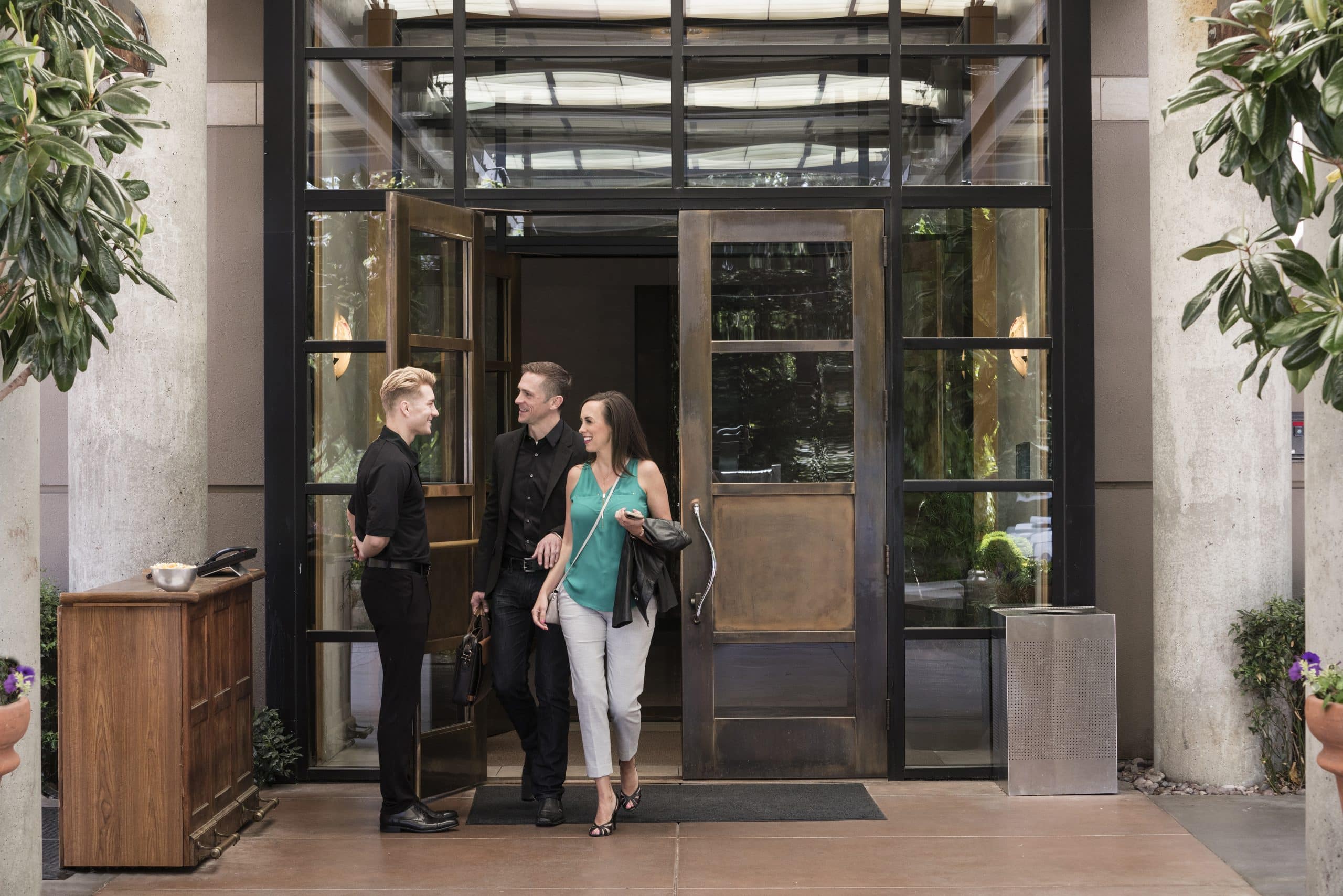Upset guests are part of any hospitality job. But handling them well is a skill that takes practice.
It’s easy to tell your team to “stay calm” or “follow the process,” but in the moment, emotions can run high, and even the most well-meaning employees can get flustered. Integrating quick, real-world practice prepares employees for these interactions and helps them go much more smoothly.
Below you’ll find three role-play scenarios along with scripts that you can use during pre-shift huddles, team meetings, or training refreshers. Each one gives your staff a chance to build muscle memory, try different responses, and walk away feeling more confident for the next time a guest interaction gets tense.
Scenario 1: “My Room Isn’t Ready and Check-In Was Supposed to Be at 3”
The scene:
A guest arrives on time, but the room isn’t ready. They’re frustrated and beginning to vent at the front desk.
Delayed check-ins are common, but how your team handles that delay often determines whether the guest walks away irritated or impressed by how it was handled.
Roles to play:
- Guest: Frustrated, feels their time isn’t being respected.
- Employee: Front desk or guest services.
Script to try:
“I completely understand—when you’re told 3:00, that’s what you plan for. I’m going to personally check on your room’s status, and in the meantime, I’d love to offer you [a drink/snack/seating area] to make your wait more comfortable.”
How to coach this kind of interaction:
- Remind your team team to validate the inconvenience right away. We don’t brush past things like this. (need a space between the two bullet points)
- It’s important to keep our tone calm, but assertive and solution-oriented.
- Offer a “gesture” when possible. It doesn’t have to be big, just something that says “we see you.”
Follow up the exercise with a question to create more conversation. Here are a couple of examples:
“What could you say if the guest keeps pressing or becomes more upset?”
“How do you stay calm without sounding dismissive?”
This will make your team feel more prepared and show them you want to support them.
Scenario 2: “Your Slot Machines Just Took All My Money”
The scene:
A guest loses a significant amount of money and vents loudly, possibly blaming the machines or the casino itself.
Even when there’s nothing you can “fix,” how your team responds can shape whether the guest leaves angry or feels like someone cared enough to listen.
Roles to play:
- Guest: Angry, possibly loud or accusatory.
- Employee: Casino floor team member or customer service.
Script to try:
“I hear you. It’s incredibly frustrating when luck doesn’t go your way. I know that’s not the experience you were hoping for. While I can’t change the outcome, I’m here to help if there’s anything you need or if you’d like to take a break in a quieter area.”
How to coach this kind of interaction:
- Avoid defensive or overly technical responses (“That’s just how the machines work”).
- Keep your body language neutral but present. Don’t cross your arms or glance away.
- Reinforce the guest’s autonomy while showing concern for their well-being.
Follow up this practice session with questions like…
“How do you respond if a guest starts blaming you or wants compensation?”
“Where’s the line between empathy and taking on blame?”
This is a great way to get inside the mind of your team members and create more coachable opportunities.
Scenario 3: “This Drink Is Terrible. I Want a Refund and Something Better”
The scene:
A guest complains loudly about a poorly made drink and demands both a refund and a replacement.
These moments are about speed, tone, and ownership. Your guest doesn’t care who made the drink; they want someone to take it seriously and fix it fast.
Roles to play:
- Guest: Loud, frustrated, may be disrupting others.
- Employee: Bartender or server.
Script to try:
“Thanks for letting me know. I’m sorry this didn’t turn out how it should have. Let me make it right. What would you like instead, and I’ll take care of it right away.”
How to coach this kind of interaction:
- Own the issue even if the mistake wasn’t yours.
- Avoid asking too many questions or defending the drink. Just fix it.
- If your policy allows, consider pre-approving comped items to speed resolution.
Once you’ve practiced the scene, prompt your team with these questions to keep the conversation going:
“What’s your plan if the guest wants a third or fourth drink comped?”
“When should a manager step in?”
Why Role-Play Works in Guest Service Training
Most people don’t improve in the heat of the moment. They improve in practice.
When your team rehearses how to respond—out loud, in real scenarios—they’re less likely to freeze or say the wrong thing when a guest interaction goes south. This isn’t just about improving communication, but building confidence and consistency, two of the most important ingredients in excellent guest service.
And don’t just run through it once. Change the tone. Try it with a teammate who plays a particularly tough guest. Let them improvise. The more you vary the scenario, the more prepared your team will be.
Want More Hospitality Industry Tools Like This?
If you’re serious about building guest service skills that actually stick, our Working With Upset Guests course walks your team through everything from reading tone to regaining control of a conversation with scenarios, scripts, and strategies that go way beyond a role-play.
Check out all of our training courses and tools here.

